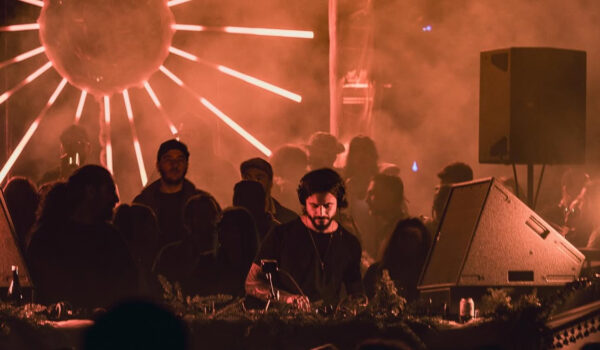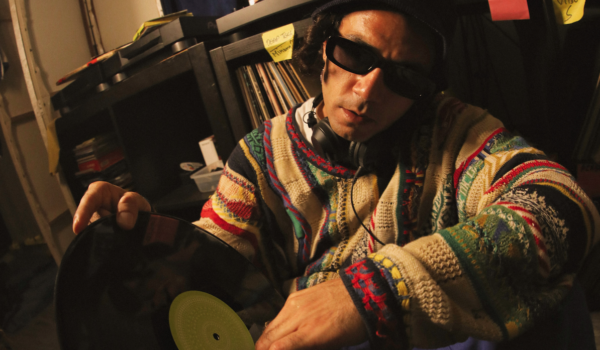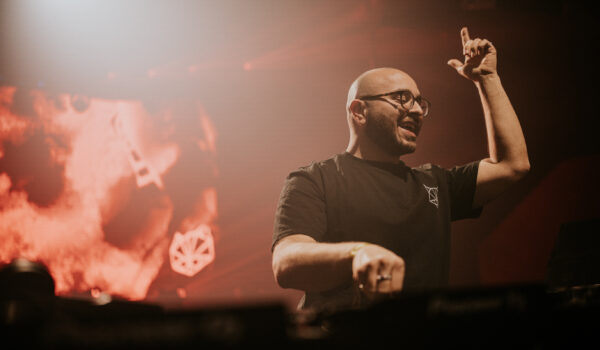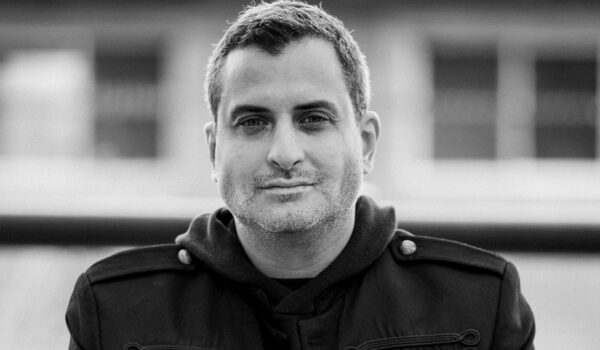Releasing a full album represents summiting an artistic mountain for many producers. Creating a collection of tracks that each stands out in its own way, yet also intertwines well with the rest of the project can be immensely difficult. Many artists, especially in the electronic realm, rarely approach full length albums due to these challenges, choosing instead to release smaller EP’s or singles.
Fred Everything, a legend of the deep house scene, has several albums under his belt. 2018’s Long Way Home came as his fourth full length project, and represented his move back to Montreal after an 8 year hiatus while he was living in San Francisco. During the creation of the project, too many alternate versions, reworks, and remixes were created to limit the body of work to just one album. In true Fred Everything fashion, he supplemented last year’s album with the release of No Way Home this week on his label Lazy Day Recordings. The album harnesses all of the top notch productions and collaborations that didn’t make the original project, yet fully deserve to be enjoyed by Fred’s longtime fanbase. Funky deep house, acid, and ambient works are just a sample of the styles on display throughout this groovy album, which comes as the final chapter of the Long Way Home story.
We caught up with Fred to discuss how No Way Home came to fruition, as well as his return to his hometown Montreal, which we couldn’t be happier about!
HS – At what stage in the creation of ‘Long Way Home’ did you start to think about the potential of continuing the projects to include a second album?
Fred – I would say at a pretty early stage, at least when all the tracks were written and I was in the production phase. I was already playing with different ideas and I felt like a lot of the songs could have a second life.
HS – Did you feel more freedom and flexibility in the production of ‘No Way Home’, as the originals were already out in their primary form?
Fred – In a way maybe. For example, it’s easier to remove a drum track on an alternate version. It would’ve been more bold to do it on the album itself. There’s also at least one track where the alternate version is on the album and the original made it on ‘No Way Home.’
HS – Some longtime collaborators lend their creative efforts to this album, such as Illija Rudman and Atjazz. What do you look for in musical partners, both in and out of the studio?
Fred – Actually for Ilija, our collaboration is recent. We met in Croatia the past few summers I’ve been going there. Those trips shaped the sound of the album, so I thought It would be great to have him onboard. Martin (Atjazz) is one of my oldest friend so it made sense to have him onboard again. Things have to be organic with collaborators. There’s usually a friendship there or a friendship in becoming. Mutual respect is very important.
HS – Do you perceive ‘No Way Home’ being consumed differently amongst listeners and DJs than its predecessor? Did you have any specific settings or uses in mind during the rework process?
Fred – I try not to have any expectations when I’m working on a project. I know some people will prefer the album, and some will prefer the alternate. The important thing is to believe in something and put it out there. Once it’s out there, it doesn’t belong to you anymore.
HS – As a born & raised Quebecois, you’ve had a unique mix of European and North American influences since early in life. How have both scenes impacted your growth as a producer and DJ?
Fred – When I arrived in Montreal in the mid 90’s, I was working at Inbeat Records. This was the best place to further my musical education as it was exactly that, a mix of American and European music. I loved the rawness of American House but was also very interested with the production values of UK house, and how they were pushing things forward mixing different styles together. I was playing UK stuff but with a Chicago style of DJ-ing. Production wise, I think there’s always been that mix in my music also.

HS – Montreal is a special place for musicians and artists, and a place you have called home for a while now. In your eyes, how does Montreal differ from other locales, especially North American cities, when it comes to supports the arts?
Fred – I’ve been in and out and I was away for 8 years but have been back here for the past 3 years. Montreal is a great base and has a lot going on for itself. I wouldn’t know how to compare it as I find it to be very unique on so many levels. It’s definitely a city where artists can live without worrying too much financially.
HS – How has the Montreal underground music scene changed since your early days of DJing here?
Fred – When I started, there was only a handful of people in control of the scene. Montreal was a hard school. You had to play right, be great, not just average, know your music, mix well and know how to work a crowd and a good sound system. I was lucky to be accepted and supported by a lot of those key players from the beginning. Things are obviously different now. Everyone is a DJ, for better or for worse. I’m not always sure if talent is always what drives the curatorial decisions of certain clubs or events.
HS – What are some of your go to Montreal spots – food, dancing, records, etc?
Fred – Some restaurants I like at the moment Vin Papillon, Elena, Café Denise and of course l’Express for a classic Bistro Experience. For records, I’m more into buying used and go to the record fairs by Vinyl Caravan and for new records, La Rama. I don’t go out a lot but I do enjoy the new Salon Daomé, Datcha…
HS – What fueled your decision to move to San Francisco? Did the cold finally get to you?
Fred – I was in a relationship at the time with someone from California and I was also working closely with Om Records for years and had a ton of friends there. I used to call California my 2nd home since I was going there so often. At the time, things in Montreal were very stagnant and I needed to experience something else and get inspired.
HS – ‘No Way Home’ sheds light on your diverse taste, touching on balearic, acid, broken beat, and latin rhythms. I’ve heard your name comes from your knack for playing ‘everything’ behind the decks. Is this accurate?
Fred – I do like to touch on a variety of music. I get bored easily. My name comes from my early days, when I used to play live. As a DJ, I would hardly call myself eclectic but I do like to inject different flavours in my set. I like colourful sets.
HS – What is your view on the way the ‘Deep House’ moniker has grown to encompass a wider range of styles? It seems to have become an overarching descriptor for most of house music.
Fred – I don’t pay attention to the labels too much. To me, they’re just a way to facilitate the customer experience. Whatever ways that can help people to find my music is cool with me.
HS – With two albums out in less than a year, have you taken some time away from the studio?
Fred – Well this is not really a real second album but the short answer is : No!
HS – Thanks for taking the time Fred, always good to catch up with a Montreal legend!
Fred – Thanks to you!









Comments